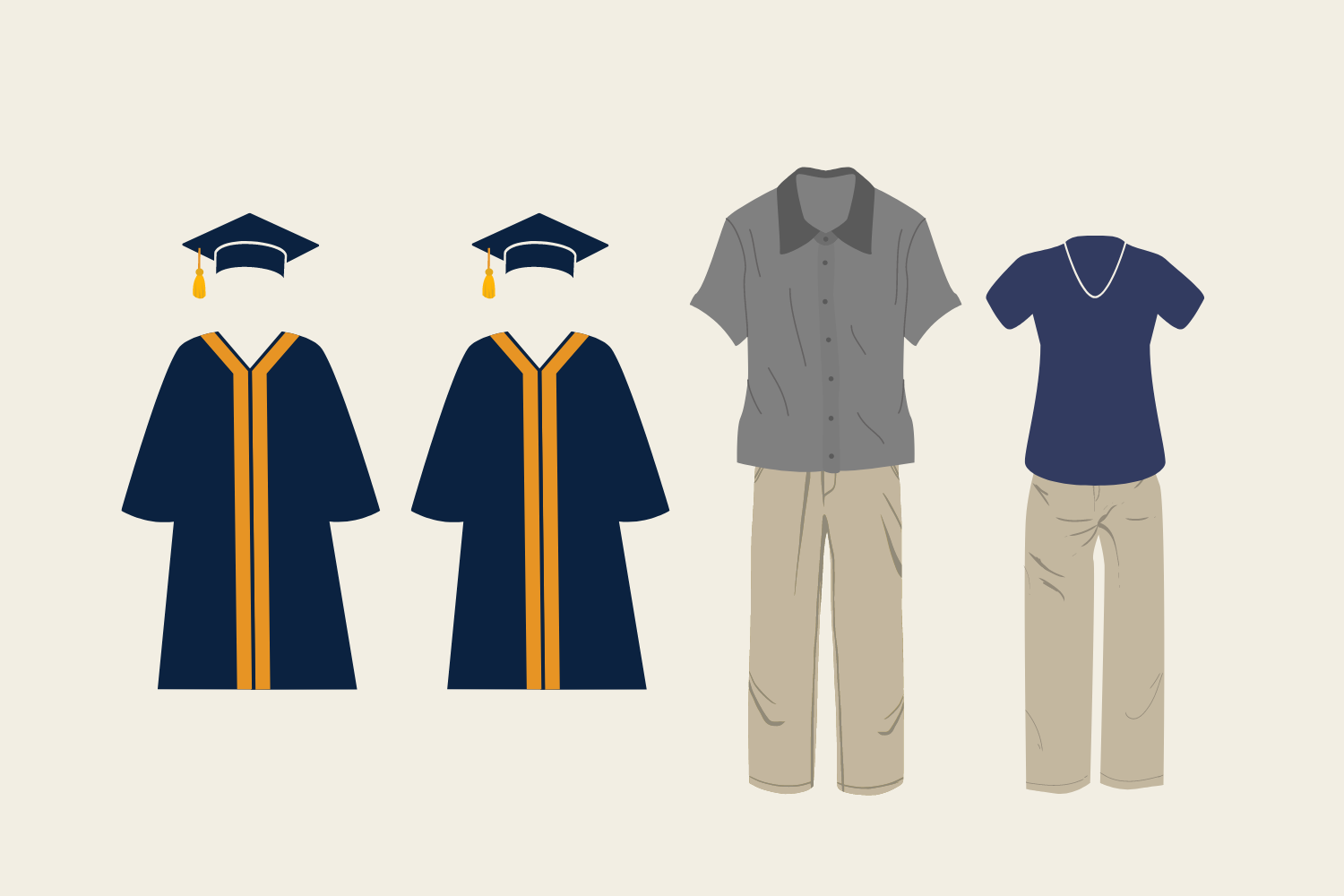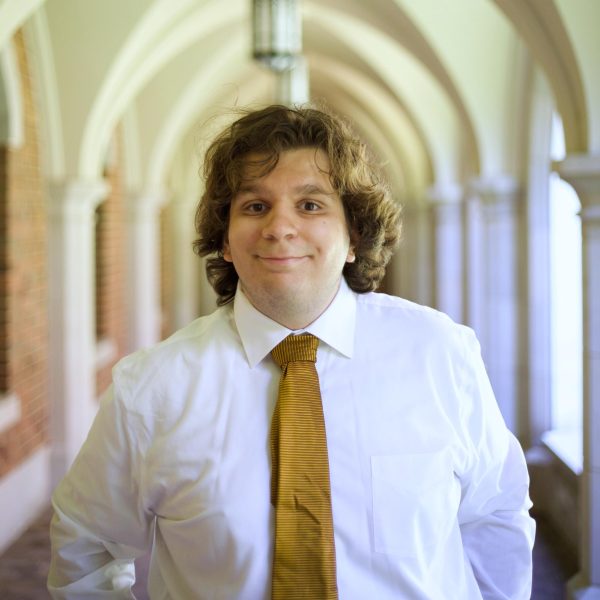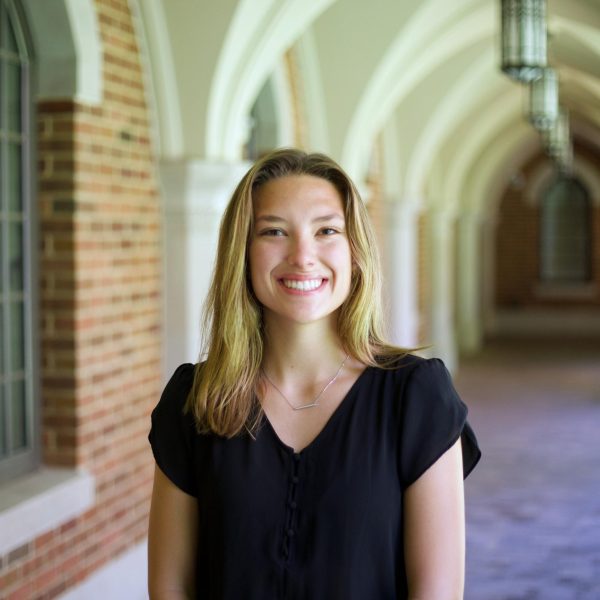Editor’s Note: This piece contains mention of gun violence.
The community of Barrow County, Georgia and I were turned upside down when a gunman unfortunately took the lives of four innocent souls on Sept. 4, 2024. My alma mater, Apalachee High School, made national headlines for the first time that I can remember and every word is now seared into my mind. I had to see images of cop cars in the same frame as the front office that I used to enter when I’d be late for school. A tragedy like this truly takes you off your feet and leaves you mute, unable to comprehend the articles right in front of you.
That morning, Randy Tarkington of Vanderbilt Student Affairs texted me asking when I could call at my earliest convenience. On that call, I told him I was “alright” and that I was “not too connected to the student body,” but I was genuinely frustrated — frustration sourced from the idea that I have heard this story countless times. Growing up, I read headlines of students my age leaving school not on a bus, but in a body bag. This is a frustration knowing that my community was robbed of innocence — that the impossible was reality, and that this tragedy was easily preventable.
We need to change how we treat gun violence in this nation. This is a story sung time and time again; this isn’t the first time gun violence has been mentioned in The Hustler in the past year, and it’s unsettling to be accustomed to it. Many in Barrow County assumed that Apalachee High School would never experience what occurred at countless other schools across the country until it happened. Believing that gun violence is an “elsewhere issue” simply puts the community at risk of experiencing it. You may wonder why a mass shooting at a high school that is a five-hour drive away should be important to you, but only five minutes away from campus, a similar tragedy has struck. I have worried that every time I enter Stevenson Center, it could be my last. The concern sits in the back of my mind, dormant until it’s recalled. Seeing photographs of my high school where students sit in a prayer circle on the same field where I ran the mile in P.E. makes the possibility too difficult to ignore. It’s moments like these where I genuinely wonder if Vanderbilt is safe.
I remember that every day, I would come back home to help my parents mow the lawn, cook dinner and walk the dog. Today, some families might not have someone to mow or boil potatoes, and the leash will stay on the counter. Tonight, some children might not have “mommy” or “daddy” come home to hug them. The night of the shooting became a grim night for Barrow County, and it very easily can become a grim night for Nashville as we have already seen only a year ago.
I could stand on a soapbox and preach that we must be angry — that we must spit putrid words towards dozens of people who we can see as “responsible,” but what good will that do? I honestly do not know at whom I should be angry. Should I be angry at only the shooter? Maybe I could get angry at their parents or the politicians who allowed the laissez-faire gun policy in the first place. There is no clear-cut solution to preventing all mass shootings in the United States, but this does not mean that we should not proceed. Even if gun reform policy cannot curb every future instance of gun violence, laws can stop those who are mentally ill from accessing firearms — especially when they are given by parents, as in the case of the Winder shooter. The idea that a similar story to that of the Crumbley family during the Oxford High School shooting in 2021 occurred with the Gray family is a clear indicator that reform must be taken to prevent troubled adolescents from having access to firearms at home.
Never in my life would I have imagined that I would be two grade levels away from having to hide with my fellow peers in a closet. Never in my life would I have imagined that anyone could die in the same building where I did calculus, but now it is possible. Never in my life would I have imagined that I would personally refresh the New York Times website, praying that a photo of my Advanced Placement Literature teacher would not appear. Now, this terror is a possibility — and it is a numbing one, to say the least.
Even though I am an adult by the legal definition, I’m really just a 19-year old “kid.” As a student on the pre-law track who cares deeply about public policy, I feel this urge to scream in the streets for justice at a school 270 miles away. Yet, I also feel numb. Again, if my birth year ended in a six rather than in a five, I might have had to hide in a closet that fateful morning. It is infuriating that anybody has to worry about the safety of their community. It will be just as infuriating — if not more so — when another school inevitably appears in the headlines next week.
If I had to make my point, I would say to hug your loved ones tightly tonight and understand that we should take gun advocacy personally because you never know when it will be necessary. This advocacy means not only sending prayers to the affected communities but also creating initiatives to help those in need through crowd-sourced fundraising. It includes taking steps to protect the future, such supporting gun reform policy by pressuring politicians at every level of government to reevaluate how our legal system treats the current relatively free access to firearms. This can also involve forming community-led organizations to use power in numbers through social media to tell the stories of those who lost their innocence after experiencing the effects of gun violence, no matter how small. Ultimately, a community vulnerable to gun violence is a community vulnerable to experiencing what countless other communities have felt in the past.
I would like to dedicate this article to those who were casualties of the Apalachee High School mass shooting on Sept. 4, 2024, and all who were impacted by it. Especially, I’d like to honor the memory of my dear family friend Cristina Irimie who was taken from us too soon.






